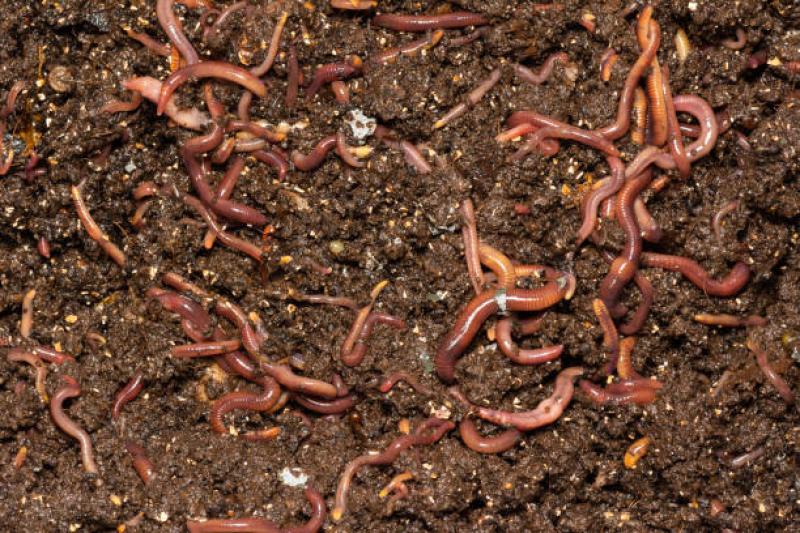Earthworm farming, also known as vermiculture, has gained considerable attention due to its environmental and economic benefits. This practice involves breeding and raising earthworms to convert organic waste into nutrient-rich compost, commonly referred to as vermicompost. With the increasing global emphasis on sustainable agriculture, soil health, and organic farming, earthworm farming has emerged as a viable business opportunity for entrepreneurs and farmers alike. Exploring its dynamics reveals how this natural process offers practical solutions for waste management while enhancing soil fertility.
Understanding the Economic Potential of Earthworm Farming Industry Growth
The Earthworm Farming sector is witnessing significant growth as demand for organic fertilizers and soil enhancers intensifies worldwide. Farmers, gardeners, and agricultural businesses are increasingly opting for vermicompost due to its efficacy in improving soil structure, water retention, and nutrient cycling. This growth is driven by the expanding organic farming market, which requires sustainable inputs to replace chemical fertilizers. Furthermore, the versatility of earthworms, which can be used as fish bait, animal feed, or in pharmaceutical research, broadens the commercial scope of this venture. An in-depth market analysis shows expanding opportunities in regions focusing on environmental sustainability and regenerative farming approaches.
Key Elements of Setting Up Earthworm Farming Business Infrastructure
Launching an earthworm farming operation involves several critical factors, including selecting an appropriate worm species, choosing a suitable farm location, and establishing ideal breeding conditions. The most commonly cultivated earthworm species are Eisenia fetida and Lumbricus rubellus due to their adaptability to various organic wastes and high reproduction rates. The farm environment should maintain moderate moisture, temperature, and aeration to optimize worm health and productivity. Organic feedstock—such as kitchen scraps, crop residues, and animal manure—provides the essential nutrients that worms require for growth. Additionally, proper bin designs, whether beds, trays, or pits, influence the efficiency of vermicomposting. Attention to these parameters is vital for maximizing yield and profitability.
Vermicompost Production Process and Its Soil Enrichment Benefits
Vermicomposting converts organic waste into humus-like material through the interaction of earthworms and microorganisms. This process not only recycles organic matter but also results in a potent biofertilizer rich in essential nutrients like nitrogen, phosphorus, and potassium. Vermicompost enhances soil microbial activity, promotes beneficial bacteria, and increases soil porosity. It significantly improves crop yield and quality, making it highly valuable for sustainable agriculture. Additionally, the application of vermicompost reduces the dependency on chemical fertilizers, promoting environmentally friendly farming practices. It supports the long-term health of agroecosystems by improving nutrient availability and mitigating soil degradation.
Commercial Applications and Revenue Streams Derived from Earthworm Farming
Beyond vermicompost production, earthworm farming presents multiple commercial avenues. Earthworms are used in aquaculture industries as high-protein feed, in pet food formulations, and as live bait in recreational fishing. Some pharmaceutical research sectors explore earthworm extracts for potential medicinal properties. The sale of earthworm castings and worm biomass offers lucrative revenue streams. Businesses can diversify income by offering composting services to agricultural and municipal entities seeking organic waste management solutions. The scalable nature of earthworm farming allows small-scale operations to evolve into large commercial enterprises, targeting niche organic markets and environmental sustainability initiatives.
Challenges and Sustainability Factors Affecting Earthworm Farming Ventures
While earthworm farming holds great promise, it also faces challenges related to environmental conditions, pest control, and feedstock availability. Maintaining optimal moisture and temperature is crucial, as earthworms are sensitive to extreme climates. Contamination with non-biodegradable waste or harmful chemicals can adversely affect worm health and compost quality. Market competition and lack of widespread awareness about vermiculture benefits can also hinder rapid commercialization. Sustainable earthworm farming should emphasize organic feedstock sourcing, biodiversity conservation, and minimizing environmental impacts through responsible waste management. Addressing these challenges ensures operational longevity and alignment with ecological preservation goals.
Earthworm farming represents an innovative intersection of agriculture, waste management, and environmental stewardship. Its expanding market potential is driven by the increasing shift toward organic and sustainable agricultural inputs. By understanding the operational intricacies and commercial opportunities, stakeholders can evaluate pathways for growth and impactful investment. Detailed industry research and market analytics provide valuable navigation for enterprises wanting to capitalize on this emerging sector’s promising future. The fusion of ecological sensibility and economic viability makes earthworm farming a compelling model for tomorrow’s agribusiness landscape.
Get This Report in Japanese Language - ミミズ養殖
Get This Report in Korean Language - 지렁이 농사
Read More Articles Related to this Industry –
How Agar is revolutionizing the Pharmaceutical and Biotechnology Sectors
About Author:
Priya Pandey is a dynamic and passionate editor with over three years of expertise in content editing and proofreading. Holding a bachelor's degree in biotechnology, Priya has a knack for making the content engaging. Her diverse portfolio includes editing documents across different industries, including food and beverages, information and technology, healthcare, chemical and materials, etc. Priya's meticulous attention to detail and commitment to excellence make her an invaluable asset in the world of content creation and refinement.
(LinkedIn- https://www.linkedin.com/in/priya-pandey-8417a8173/)
